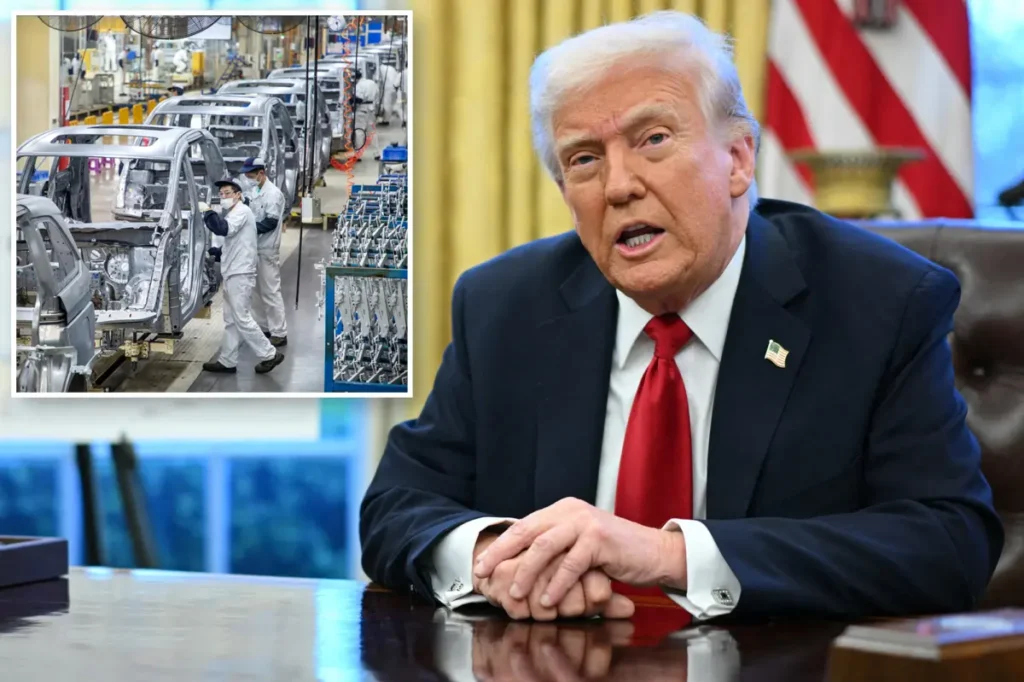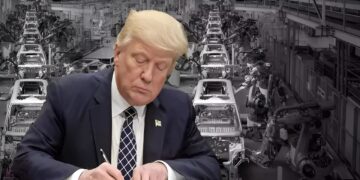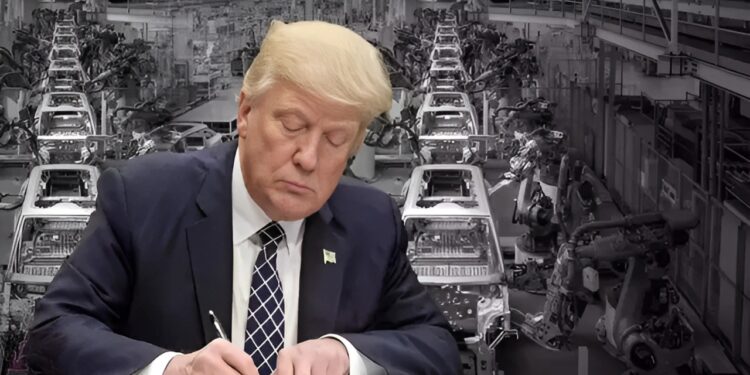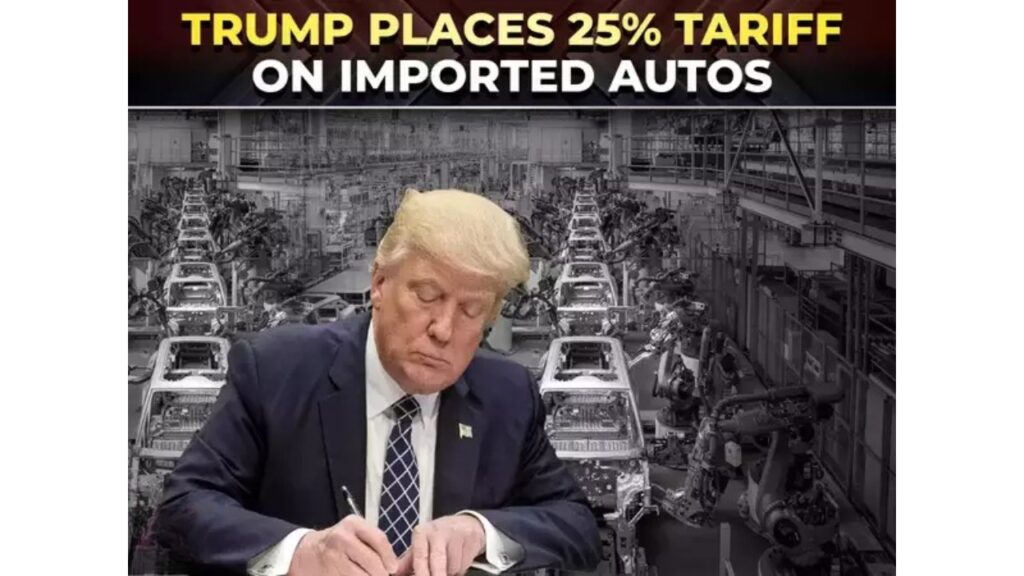Starting April 3, Donald Trump’s 25% auto tariff could lead to higher costs and reduced sales. However, he anticipates that the policy will drive the opening of new factories in the U.S. and transform the supply chain. United States President Donald Trump on Wednesday announced a 25 per cent tariff on auto imports, saying it would boost domestic manufacturing and generate $100 billion annually.
Former U.S. President Donald Trump has announced a 25% tariff on all imported automobiles, a move expected to generate approximately $100 billion in tax revenue. The decision, aimed at boosting domestic manufacturing and reducing trade deficits, could have significant implications for global car manufacturers and the U.S. auto industry. Stay tuned for more updates on this developing story.
President Donald Trump on Wednesday announced a 25 per cent tariff on auto imports, saying it would boost domestic manufacturing and generate $100 billion annually.
This move will further drive growth. ‘We will be implementing a 25% tariff,’ Donald Trump stated to reporters.
With the latest tariff set to take effect on April 3, automakers may soon face rising production costs and declining sales. However, former President Donald Trump believes this move will lead to new factory openings in the United States while eliminating what he calls a “ridiculous” supply chain that stretches across the U.S., Canada, and Mexico. Emphasizing the long-term impact of the policy, Trump stated, “This is permanent.”
Trump has consistently championed auto import tariffs as a key element of his economic strategy, arguing that higher costs on foreign-made vehicles will encourage manufacturers to shift production to the U.S. and help reduce the budget deficit.
However, economic experts warn of negative consequences for consumers. Mary Lovely, an economist and senior fellow at the Peterson Institute for International Economics, told the Associated Press,
“We are looking at much higher vehicle prices. We are going to see reduced choice… These kinds of taxes fall more heavily on the middle and working class.”
As the new tariffs roll out, the auto industry is bracing for potential disruptions, while consumers may soon feel the pinch of increased car prices and limited options.
As new car prices continue to rise—now averaging around $49,000—more households are being pushed out of the market, forcing many to hold on to their aging vehicles for longer, according to industry expert Lovely.
In 2024, the United States imported nearly 8 million cars and light trucks, with a total value of $244 billion. The top sources for these imports were Mexico, Japan, and South Korea. Additionally, auto parts imports exceeded $197 billion, with the majority coming from Mexico, Canada, and China, as reported by the U.S. Commerce Department.
With rising costs and a heavy reliance on imports, the automotive industry continues to face challenges that impact both consumers and manufacturers.
Revenue Generation
The White House anticipates that these tariffs will generate approximately $100 billion per year. According to the administration, this revenue could play a crucial role in reducing the budget deficit while also supporting American industries. However, experts caution that the increased costs may weaken consumer demand and potentially slow economic growth.
Higher Car Prices
If automakers transfer the full tariff burden to consumers, the cost of imported vehicles could surge by approximately $12,500. With the average price of a new car already nearing $49,000, this increase could make vehicle ownership even more challenging for middle-class buyers.
Extremely regrettable: Global reactions to Donald Trump’s 25% ‘permanent’ auto tariffs
Former U.S. President Donald Trump has announced a 25% tariff on auto imports, a move aimed at boosting domestic manufacturing. The tariffs, set to take effect on April 3, have triggered strong opposition from major trade partners, including Japan, the European Union, Canada, and the UK.

Industry experts warn that the new tariffs could lead to higher car prices, potential job losses, and retaliatory trade measures from affected countries. As tensions rise, global automakers and policymakers are closely monitoring the situation, anticipating significant disruptions in the automotive sector.
In a major trade policy move, former U.S. President Donald Trump announced on Wednesday a 25% tariff on auto imports, a decision the White House asserts will strengthen domestic manufacturing. Speaking to reporters, Trump stated, “This will continue to spur growth. We’ll effectively be charging a 25% tariff.”
The new tariff is expected to have far-reaching consequences for global automakers and could significantly impact trade relations. While the administration promotes this measure as a step toward revitalizing the American auto industry, international trade partners may respond with countermeasures.
Starting April 3, a new policy will take effect, impacting automakers with increased annual costs. However, growing concerns include rising production expenses, potential job losses, and possible retaliatory actions from affected countries. Former President Donald Trump defends the move, asserting that it will boost domestic manufacturing and decrease dependence on an overly complex supply chain that spans North America and beyond.
Read Also















 Categories
Categories










